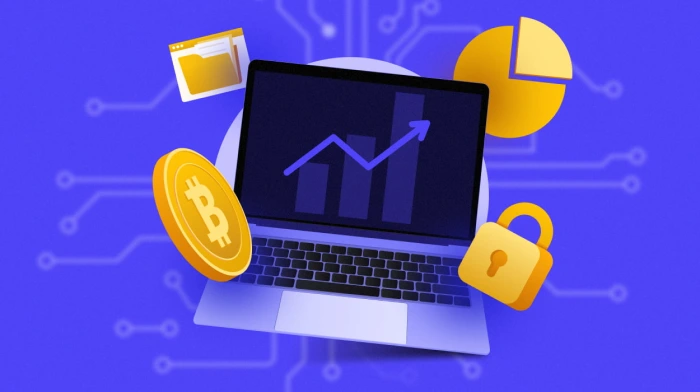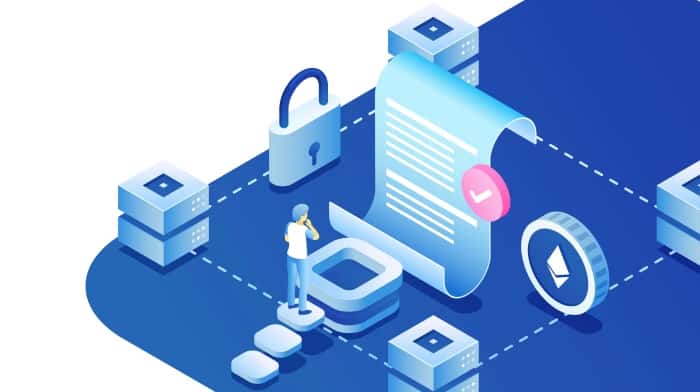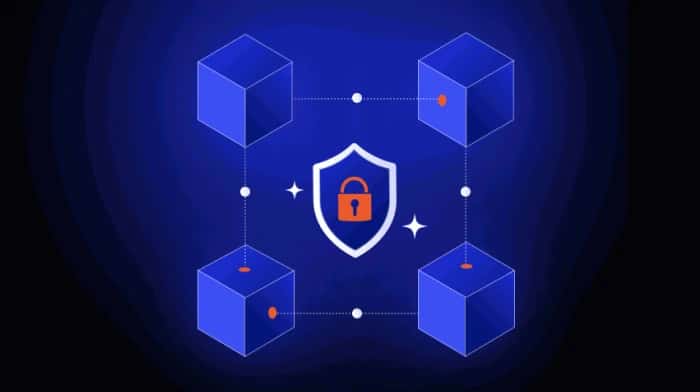
Introduction
The world of commerce is on the cusp of an overhaul. At the heart of this change is blockchain technology, which has come a long way since its beginnings as the backbone of digital currencies.
These days its influence extends beyond the realm of cryptocurrency, driving innovation in all sorts of industries that have long been weighed down by paper-based systems. Trade finance, in particular, is an area where blockchain is making waves.
For decades trade finance has been a cumbersome process, slow to adapt to the demands of a changing world. With blockchain, all of that is starting to change.
The Rise of Blockchain in Trade Finance
The trade finance sector is really taking off as a place for blockchain technology. It's not hard to see why. By using blockchain, companies can make their transactions more:
- •Secure
- •Transparent
- •Cost effective
It's a big deal. It's changing the way trade finance works. A lot of institutions are catching on. In fact, over half of them think technologies like blockchain, digital commerce and online trading platforms are crucial for their future plans.
This represents a significant shift in how global trade operates. Instead of relying on traditional methods, companies are turning to digital solutions that are faster and more efficient.
For all this to work, different institutions are going to have to work in ways they never have before. For a long time these companies have been competing with each other. Now they need to collaborate if they want to succeed in this new digital landscape.
Understanding Trade Finance Fundamentals
The basics of trade finance are pretty straightforward. It's essentially a bunch of tools and mechanisms that make international trade possible. This system is what allows countries to buy and sell goods from one another. It's the lifeblood of importers and exporters around the globe.
At its core, trade finance is about facilitating cross-border transactions and it plays a vital role in keeping the global economy humming.
The Importance of Trade Finance
The World Trade Organization says that trade finance plays a crucial role in supporting a significant chunk of global trade - around 80 to 90%. This is because trade finance helps fill the gaps that exist between trading partners, making it easier for them to do business together.
One of the key issues it tackles is the risks that come with international transactions, such as:
- •Not being sure if someone will pay up
- •Changes in currency values
- •Problems that can arise from politics
These risks can have a major impact on how businesses operate.
Key Trade Finance Instruments
In the world of trade finance, there are several key components that work together to make international transactions run smoothly:
Trade Finance Instruments
| Instrument | Purpose | Benefit |
|---|---|---|
| Letter of Credit | Bank guarantee for payment | Ensures payment when conditions are met |
| Export Credit Agencies | Government-backed support | Reduces export risks through loans and guarantees |
| Trade Insurance | Risk protection | Covers non-payment, political risks, and cargo damage |
| Forfaiting | Debt selling mechanism | Transfers risk from exporter to buyer |
| Supply Chain Finance | Cash flow management | Improves working capital throughout the process |
How Blockchain Transforms Trade Finance
When it comes to trade finance, integrating blockchain technology can really make a difference. For years, international trade has been hindered by significant problems. The old way of doing things relies on a lot of paperwork and middlemen, which leads to:
- •Slowdowns
- •High costs
- •Opportunities for fraud
Creating Trust Through Transparency
Blockchain technology lays the groundwork for a more trustworthy transaction process - one that doesn't need a lot of third-party verification. This is a big deal, especially when it comes to international trade.
For example, when an importer's bank issues a letter of credit, it's like a guarantee that the exporter will get paid. With blockchain, this whole process becomes a lot more straightforward and efficient.
The ledger is shared among all the parties involved - banks, trading companies, insurance providers and so on - which makes it easy to share documents and keep everything above board.
Key Benefits of Blockchain Implementation
One of the major benefits of blockchain is that every single transaction gets its own unique timestamp and cryptographic signature. This creates a record that's permanent and can't be altered, which is pretty powerful.
This openness is key to making sure everyone involved has the same information, which helps build trust and stops people from trying to cheat the system.
Smart Contracts Revolution
When it comes to keeping everything running smoothly, smart contracts are essential. They automatically put into action the rules that have been set up to:
- •Manage risks
- •Resolve disputes
- •Execute shipping and trade terms
- •Send payment notifications when conditions are met
The Role of Banks in Modern Trade Finance
Trade finance wouldn't be the same without banks. They're basically the backbone of the operation, helping to make international trade happen and supporting the global economy.
By simplifying deals, cutting down on risks, and making sure there's liquidity floating around, banks make it easier for countries to do business with each other.
Core Banking Services in Trade Finance
Banks provide several crucial services:
- •Letters of Credit: Payment guarantees that reduce cross-border trading risks
- •Short-term Lending: Helps companies cover costs like shipping and materials
- •Payment Processing: Manages the entire payment workflow
- •Trade Credit Insurance: Protects against partner insolvency or default
- •Currency Exchange Services: Hedging facilities and forward contracts
Banks offer a range of services for exchanging currency, like forward contracts and hedging facilities. This allows companies to lock in exchange rates and shield themselves from sudden shifts in the currency market.
Real-World Blockchain Implementation Examples
Major financial institutions are already using blockchain technology in trade finance, and it's proving to be pretty effective. It's estimated that two-thirds of the world's banks will use blockchain in some way, with many already working with blockchain companies to test out new ideas.
Notable Success Stories
HSBC made headlines in May 2018 when it completed what it said was the first real-world trade finance deal using blockchain. This was a significant achievement, showing that blockchain could be used in a practical way for complex financial transactions.
The deal involved:
- •A letter of credit issued to ING bank
- •A soybean shipment from Argentina to Malaysia
- •US giant Cargill at the helm
Barclays has been touting blockchain as a game changer, calling it the foundation for a new system. The bank claims to be among the first to use blockchain tech for trade finance, utilizing Wave, a platform specifically developed for blockchain-based transactions.
Industry-Wide Collaboration
A few years ago, some big European banks teamed up with IBM to create a platform that would make it easier for small businesses to get financing for orders. This was a big deal and marked a significant shift in how these banks do business.
IBM's partnership with Maersk has spurred the creation of online blockchain platforms for the container shipping industry, which has helped digitalize supply chain processes.
The Future Impact of Blockchain on Trade Finance
The impact of blockchain on trade finance is likely to be significant. This technology is set to revolutionize the way businesses go about their dealings, bringing about an era of:
- •Greater openness
- •Enhanced security
- •Streamlined processes
As a result, the global economy is poised to become more interconnected.
Beyond Traditional Payments
A notable example of blockchain's capabilities can be seen in payment systems, which highlight the technology's ability to facilitate more efficient transactions.
Businesses can now accept payments in all sorts of cryptocurrencies thanks to cutting-edge platforms that let them handle transactions on their own without any middlemen. This means they don't have to shell out traditional processing fees.
But that's not all. Blockchain tech does a lot more than process payments. It's also used for:
- •Crowdfunding
- •Loyalty schemes
- •Charity donations
This shows just how flexible it can be when it comes to helping businesses get things done.


